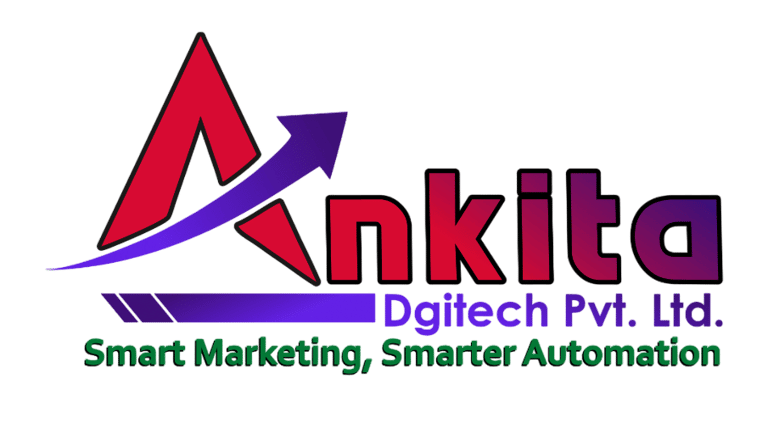Digital Marketing with AI: How Artificial Intelligence is Transforming Online Strategies
Discover how AI is revolutionizing digital marketing through personalization, automation, predictive analytics, and smarter customer engagement.
Arpit
8/28/20253 min read


Introduction
The digital world is evolving faster than ever, and Artificial Intelligence (AI) is at the center of this transformation. From personalized recommendations on Netflix to smart chatbots on e-commerce websites, AI has become an integral part of our daily lives. In digital marketing, AI is not just a trend—it’s a powerful tool that helps businesses connect with the right audience, improve engagement, and increase ROI.
With the help of AI, digital marketing has shifted from guesswork to data-driven strategies that deliver precise results. Let’s explore how AI is reshaping online marketing and why businesses must embrace it today.
What is AI in Digital Marketing?
Artificial Intelligence in digital marketing refers to the use of smart algorithms and data-driven models to automate, analyze, and optimize marketing activities. It uses technologies like:
Machine Learning (ML): Helps predict customer behavior based on historical data.
Natural Language Processing (NLP): Powers chatbots, voice search, and content optimization.
Predictive Analytics: Forecasts trends, customer preferences, and sales outcomes.
In short, AI helps marketers understand customers better, deliver personalized experiences, and make smarter decisions.
Benefits of AI in Digital Marketing
Personalization at Scale
AI analyzes customer data and provides tailored recommendations.
Example: Netflix suggesting movies or Amazon recommending products.
Marketing Automation
Saves time by automating repetitive tasks like email campaigns, ad placements, and reporting.
Predictive Customer Behavior
AI predicts what customers might do next—whether it’s making a purchase, clicking on an ad, or unsubscribing.
Improved ROI Tracking
With AI analytics, businesses can measure the real impact of campaigns and adjust strategies in real-time.
Applications of AI in Digital Marketing
1. Content Creation & Curation
AI tools can generate blogs, social media captions, ad copies, and even video scripts.
Example: Jasper AI, Copy.ai, and Writesonic for quick content creation.
Marketers can scale content production without compromising quality.
2. Chatbots & Customer Service
AI-powered chatbots offer 24/7 customer support, handle FAQs, and even upsell products.
Example: E-commerce websites using chatbots to guide buyers.
3. Email Marketing Automation
AI ensures that emails are sent to the right people at the right time with personalized subject lines and content.
Example: Mailchimp AI and HubSpot AI for predictive email campaigns.
4. SEO & SEM Optimization
AI tools analyze search intent, recommend keywords, and optimize ad performance.
Example: SEMrush, Ahrefs, and Surfer SEO using AI-driven insights.
5. Social Media Marketing
AI helps brands track engagement, predict trends, and schedule posts for maximum visibility.
Example: Hootsuite Insights AI, Meta AI Ads Manager.
6. Predictive Analytics
AI analyzes past data to forecast future sales, customer journeys, and market trends.
Businesses can make smarter decisions about pricing, promotions, and inventory.
AI Tools for Digital Marketing
Here are some popular AI tools every digital marketer should know:
Jasper AI – AI content writing & ad copy creation.
ChatGPT – Conversational marketing, content writing, and customer engagement.
HubSpot AI – CRM, lead nurturing, and email automation.
SEMrush / Ahrefs AI Features – SEO keyword research & competitor analysis.
Google Ads AI & Meta Ads Manager – Smarter ad placements with higher ROI.
Challenges & Limitations of AI in Marketing
Data Privacy Concerns: AI depends on user data, which raises privacy and security issues.
Over-Reliance on Automation: AI can handle data, but creativity and human emotions still need human marketers.
High Costs for Small Businesses: Advanced AI tools may be expensive for startups.
Future of AI in Digital Marketing
The future looks promising as AI continues to evolve. Here’s what we can expect:
Hyper-Personalized Experiences – Customers will see ads and offers tailored specifically for them.
Voice & Visual Search Optimization – With Alexa, Siri, and Google Lens, businesses will optimize for new search trends.
AI-Driven Storytelling – AI will help brands create engaging stories based on customer emotions and preferences.
Conclusion
Artificial Intelligence is not replacing marketers—it’s empowering them with smarter tools and insights. From creating personalized campaigns to predicting customer behavior, AI is transforming digital marketing at every stage.
Businesses that embrace AI today will not only stay ahead of competitors but also build stronger, long-term customer relationships. The future of digital marketing is AI-driven, and the time to adapt is NOW.
Address
Ankita Dgitech pvt. ltd.
PLOTNO, 532, RADHE KRISHNA MANDIR, Pahari, Sampatchak, Patna- 800007, Bihar
Contact
Follow
contact@ankitadgitech.com
www.ankitadgitech.com
7209514289
© 2025 Ankita Dgitech Pvt. Ltd. All Rights Reserved.
Our Services
AI-Powered Digital Marketing
Social Media Marketing
Search Engine Optimisation (SEO)
Google Ads & Meta Ads
Website Designing & Development
AI Automation Solutions
AI-Powered Digital Marketing Course
